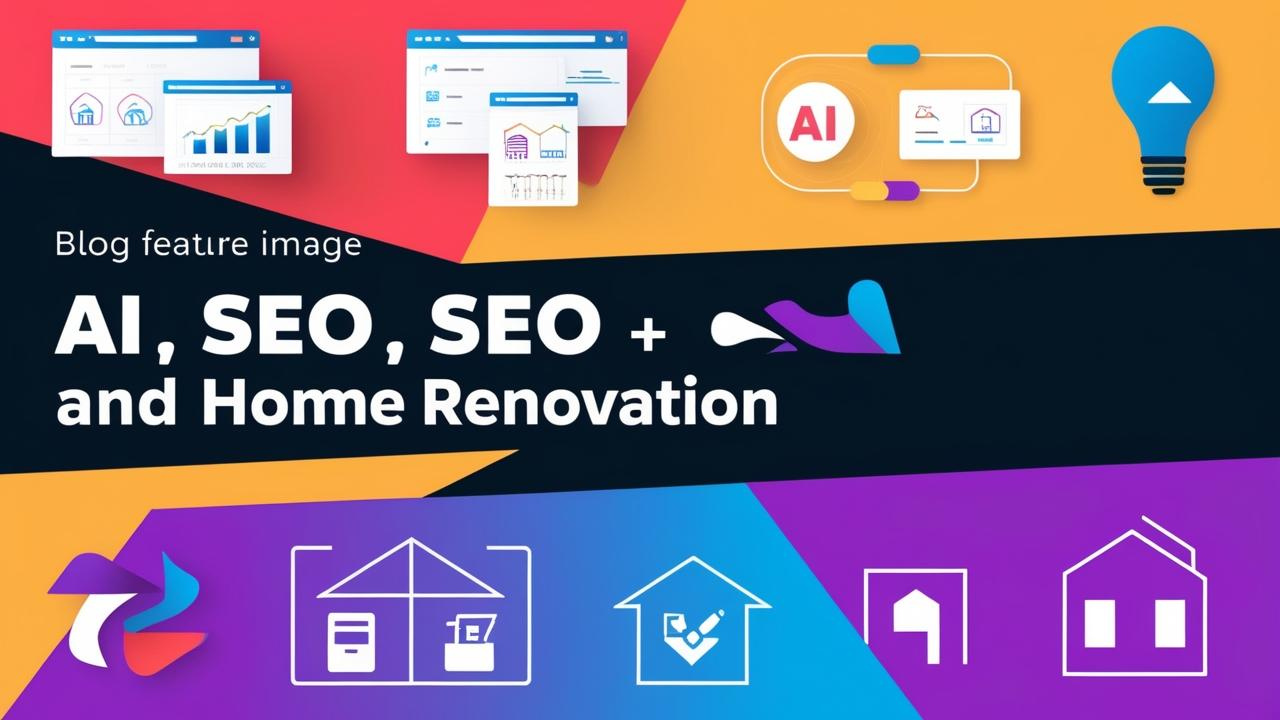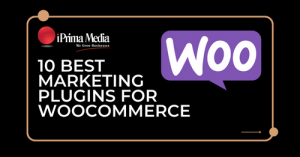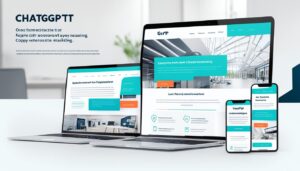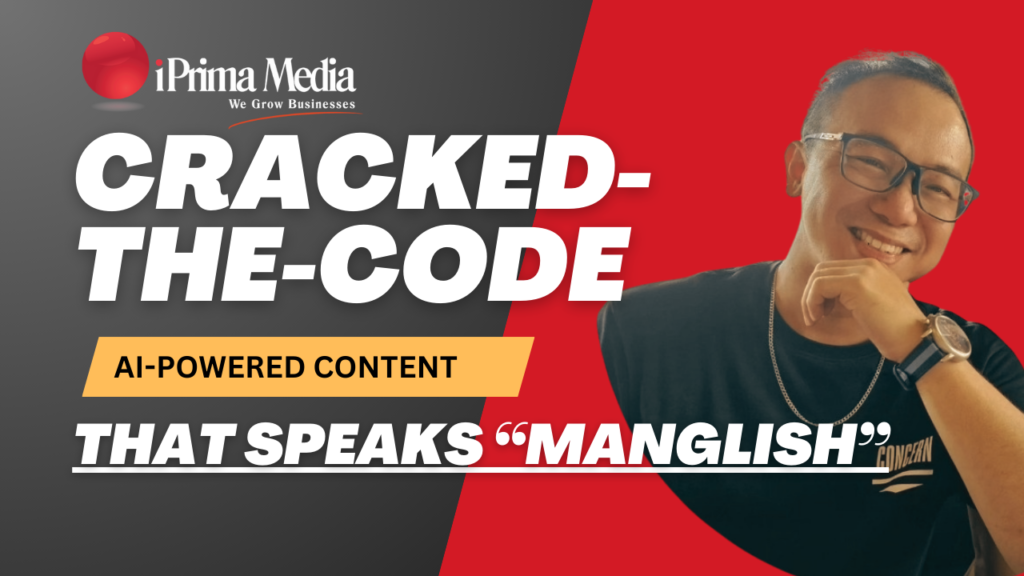The Cornerstone of SEO: Why Regular Audits Remain Essential
Just as a home renovation requires periodic check-ups, your website's SEO needs regular attention. An SEO audit is a comprehensive analysis of your website's health, identifying areas for improvement to boost visibility in search results. While the frequency has traditionally been viewed as annual or bi-annual, the speed of change in the digital world, particularly with AI, necessitates a more agile and frequent approach.
Here's a breakdown of why regular SEO audits are non-negotiable:
Algorithm Updates: Search engines like Google constantly update their algorithms. These updates can significantly impact rankings, and audits help you identify if your website is adapting.
Competitive Landscape: Your competitors are constantly optimizing their websites. Regular audits allow you to benchmark and identify opportunities to surpass them.
Content Performance: Understanding which content is performing well and what needs improvement is vital for attracting and engaging your target audience.
Technical Issues: Hidden technical problems can hinder your website's crawlability and indexability, impacting SEO.
Evolving User Behavior: Search intent and user expectations change. Audits help you ensure your website meets current needs.
Search Engine Optimization (SEO) is a dynamic field, and the humble SEO audit remains a cornerstone of any successful digital strategy. Traditionally, determining how often to conduct an audit depended on factors like your website's size, the competitiveness of your industry (think the bustling renovation market, with players from material suppliers like AmpQuartz.com and StoneAmperor.com.sg to full-service renovators), your current SEO health, and how much your business leans on online revenue.
For a small local renovator, a deep dive every six months might have sufficed, while a national home solutions provider might need weekly check-ins. This foundational wisdom still holds, but the how of SEO audits and the subsequent actions are undergoing a seismic shift, all thanks to Artificial Intelligence.
As of May 2025, AI isn't just a buzzword in SEO; it's an integral toolkit for deeper insights, faster execution, and smarter strategies. If your SEO audit process hasn't evolved, you're likely leaving performance, and profit, on the table. Platforms like SE Ranking and others now incorporate AI to enhance many aspects of SEO, from audit to execution. This article explores how to integrate cutting-edge AI tactics into your SEO audit rhythm and post-audit execution, with a special focus on the renovation and home solutions sector.
The SEO Audit: AI-Enhanced Foundations

Before AI, SEO audits were largely manual, time-consuming processes. Today, AI supercharges the audit itself:
- AI-Powered Anomaly Detection: Forget waiting for your scheduled audit to catch a problem. Modern AI tools, often integrated into comprehensive SEO platforms like SE Ranking, continuously monitor your website's vital signs. They can instantly alert you to unusual drops in organic traffic, sudden keyword ranking nosedives, or critical technical SEO errors (like mobile usability issues on your AmpQuartz.com kitchen cabinet showcase pages). This allows for a more agile, real-time response.
- Predictive AI for Proactive Audits: Why just react when you can anticipate? AI algorithms can analyze market trends (perhaps gleaned from sites like Renotalk.com discussions), competitor movements, and even potential search engine algorithm shifts. For a renovation business, this could mean getting an early warning that searches for “eco-friendly quartz countertops” or “AI-designed living spaces” are about to spike, prompting a proactive audit and refresh of relevant content.
- Automated Technical SEO Checks at Scale: For renovation companies with extensive online portfolios – showcasing everything from door and window solutions to detailed project galleries of aluminum sliding doors and cabinets, much like AmpQuartz.com does – AI can be a lifesaver. SEO tools use AI to regularly crawl hundreds or thousands of pages, efficiently identifying broken links, schema markup errors, Core Web Vitals performance bottlenecks, and indexation problems that could hinder your visibility.
The Updated Frequency: Moving Beyond Annual Checks
While a comprehensive audit every 6-12 months is still recommended, the integration of AI into SEO necessitates a more frequent, iterative approach. Here's a suggested timeline, with flexibility depending on your industry and competitive intensity:
Monthly Quick Checks (Automated & AI-Powered): This involves using AI-powered tools to monitor key metrics like keyword rankings, website traffic, backlinks, and technical health. These tools can flag immediate issues requiring attention.
Quarterly In-Depth Analysis (Hybrid Approach): A more detailed audit combining automated reports with human expertise. This is where you delve into content performance, user experience, and competitive analysis.
Major Overhauls (Semi-Annually/Annually): A comprehensive, strategic review focusing on long-term goals, website architecture, and significant SEO changes. This is where you incorporate the latest advanced AI tactics.
Leveraging the Power of AI in Your SEO Audits (2025 & Beyond)
AI is no longer a futuristic concept in SEO; it's a present-day reality. Here's how it's transforming the SEO audit process:
1. AI-Powered Keyword Research & Intent Analysis:
Traditional: Manual keyword research using tools like Google Keyword Planner.
AI-Driven (Innovative & Successful): Tools like Surfer SEO, Semrush's AI Keyword Magic Tool, and Scalenut utilize AI to go beyond simple keyword volume and competition. They analyze search intent with incredible accuracy, identifying long-tail keywords and semantic clusters that align with user needs in the renovation market.
Example: Instead of just targeting “kitchen remodel,” AI might identify high-intent long-tail keywords like “modern farmhouse kitchen remodel cost [city]” or “small bathroom renovation ideas for renters.”
Success Story: A local renovation company in Austin, TX, used Surfer SEO's AI content editor to create blog posts targeting specific user intents. This resulted in a 40% increase in organic traffic within three months.
2. Advanced Technical SEO Audits with AI:
Traditional: Manual crawling and analysis of website code.
AI-Driven (Used & Successful): Tools like Screaming Frog SEO Spider (with AI integrations) and Deepcrawl utilize AI to identify complex technical issues like broken internal links, crawl errors, slow page speed bottlenecks (including Core Web Vitals), and duplicate content with greater efficiency. AI can also predict potential technical problems before they impact rankings.
Example: AI can identify that a specific image on a project gallery is too large and hindering page load speed, suggesting optimized formats or compression.
Success Story: A national renovation franchise utilized Deepcrawl's AI-powered insights to identify and fix numerous crawl errors and indexing issues, leading to a significant improvement in website crawlability and indexation.
3. Content Gap Analysis & Optimization with AI:
Traditional: Manual analysis of competitor content.
AI-Driven (Innovative & Successful): Tools like Frase.io and Clearscope use AI to analyze top-ranking content for target keywords, identifying content gaps and suggesting topics, keywords, and structure for your own content. AI can even help optimize existing content for better relevance and readability.
Example: AI might reveal that competitors are successfully covering specific aspects of bathroom renovations (e.g., sustainable materials) that your website is missing, prompting you to create new content on that topic.
Success Story: A small renovation business in Denver, CO, used Frase.io to analyze competitor blog posts and create comprehensive guides on “bathroom renovation trends 2024,” resulting in higher rankings and increased organic traffic.
4. Enhanced Link Building with AI:
Traditional: Manual outreach and link analysis.
AI-Driven (Used & Promising): AI tools like BuzzSumo (with AI features) can identify trending content and potential link opportunities based on relevance and authority. AI can also assist in personalizing outreach emails for higher response rates.
Example: AI can identify journalists and bloggers who are actively writing about home renovation and suggest tailored outreach messages based on their recent publications.
Success Story: A design-focused renovation firm leveraged BuzzSumo's AI to identify relevant publications and influencers in the home decor space, leading to a successful link-building campaign and increased domain authority.
5. Predictive SEO & Trend Forecasting with AI:
Traditional: Reactive SEO based on past performance.
AI-Driven (Innovative & Emerging): AI algorithms can analyze vast amounts of data to predict future search trends, identify emerging keywords, and anticipate algorithm updates. This allows you to proactively adapt your SEO strategy.
Example: AI might predict a surge in searches for “smart home renovation” in the coming months, prompting you to create content around this topic.
Success Story: While still evolving, some forward-thinking agencies are using AI-powered predictive analytics to advise clients on long-term SEO strategies and investment decisions.
Innovation in the Renovation Market: Beyond Standard SEO
Beyond the core AI-powered tactics, here are some innovative and successful strategies gaining traction in the renovation market:
Visual SEO & AI Image Recognition: Incorporating high-quality visuals is crucial for showcasing renovation projects. AI image recognition can help optimize image alt text for better searchability and even identify visual trends to inform content creation.
Example: Using AI to automatically generate descriptive alt text for images of completed projects, incorporating relevant keywords like “modern kitchen cabinets” or “granite countertops.”
Voice Search Optimization: With the increasing popularity of voice assistants, optimizing for conversational keywords is vital. This involves targeting longer, more natural language queries.
Example: Optimizing content for questions like “how much does it cost to renovate a bathroom?” instead of just “bathroom renovation cost.”
Local AI-Powered Content Personalization: Utilizing AI to personalize website content based on user location, search history, and demographics can improve engagement and conversions.
Example: Displaying project examples and testimonials specific to the user's city or neighborhood.
AI-Driven Chatbots for Lead Generation: Implementing AI-powered chatbots on your website can provide instant answers to customer queries, qualify leads, and schedule consultations.
Example: A chatbot can ask visitors about their renovation needs and budget, then connect them with a relevant project manager.
Post-Audit Power-Up: Executing with AI SEO Tactics in 2025

An audit's true value lies in the actions taken based on its findings. This is where AI truly shines, offering transformative capabilities:
1. AI-Driven Content Strategy & Creation for Renovations
The renovation market thrives on inspiration and trust. AI helps you craft content that resonates and ranks.
- Hyper-Local and Personalized Content: Generic content gets lost. AI enables you to create highly targeted articles and landing pages.
- Example: Instead of “Kitchen Renovation Ideas,” AI can help generate “The Top 5 Quartz Countertop Trends in Johor Bahru for 2025” (relevant for a supplier like StoneAmperor.com.sg) or “Navigating Iskandar Puteri Building Permits for Your Home Extension.”
- Innovative Edge: AI can perform “content gap analysis” against local competitors, revealing opportunities like “The Future of Aluminum Cabinets in Coastal Malaysian Homes,” a topic AmpQuartz.com might explore.
- Optimizing for Answer Engine Optimization (AEO): With Google's AI Overviews and conversational AI shaping how users find information, your content must provide direct answers.
- Example: A renovator can use AI to identify common homeowner questions often seen on forums like Renotalk.com, such as, “How much does it cost to install aluminum sliding doors?” and then create concise, authoritative FAQ sections optimized with structured data.
- Showcasing Expertise (E-E-A-T) with AI Assistance: Google's E-E-A-T (Experience, Expertise, Authoritativeness, Trustworthiness) guidelines are paramount. While AI can draft, human experience is key.
- Example (Renovation): Use AI to help structure and draft compelling case studies. For instance, AmpQuartz.com could detail how their specific range of kitchen cabinets and countertop solutions addressed a unique client need, augmenting AI drafts with genuine project photos, client testimonials sourced ethically, and insights from their experienced designers. Similarly, StoneAmperor.com.sg could showcase projects highlighting the unique application of their stone products.
- Example (Renovation): Use AI to help structure and draft compelling case studies. For instance, AmpQuartz.com could detail how their specific range of kitchen cabinets and countertop solutions addressed a unique client need, augmenting AI drafts with genuine project photos, client testimonials sourced ethically, and insights from their experienced designers. Similarly, StoneAmperor.com.sg could showcase projects highlighting the unique application of their stone products.
2. Advanced AI Keyword Research & Semantic SEO
Move beyond simple keywords to understand the underlying intent and topical authority. Tools like SE Ranking offer AI-enhanced keyword research features.
- From Keywords to Comprehensive Topics & User Intent: AI tools excel at uncovering semantic relationships between keywords, helping you build out comprehensive topic clusters.
- Example (Renovation): For a central pillar page on “Complete Home Renovations,” AI can suggest essential sub-topics such as “Choosing Energy-Efficient Window Solutions,” “The Benefits of Custom Aluminum Cabinets from AmpQuartz,” “Financing Your Home Renovation Project in Malaysia,” and “Finding Reputable Renovation Contractors through Portals like Renotalk.com.”
- Example (Renovation): For a central pillar page on “Complete Home Renovations,” AI can suggest essential sub-topics such as “Choosing Energy-Efficient Window Solutions,” “The Benefits of Custom Aluminum Cabinets from AmpQuartz,” “Financing Your Home Renovation Project in Malaysia,” and “Finding Reputable Renovation Contractors through Portals like Renotalk.com.”
- Predictive Keyword Analysis: Stay ahead of the curve. AI can analyze emerging search patterns to identify keywords related to new renovation trends or materials before they hit peak popularity.
3. AI for Enhanced Local SEO in the Renovation Market
For most renovation businesses, local visibility is everything.
- Google Business Profile (GBP) Optimization on Autopilot: AI tools can offer data-driven suggestions for your GBP categories, services, attributes, and even help draft Q&A responses or engaging GBP posts showcasing recent projects from companies like StoneAmperor.com.sg.
- Streamlined Local Citation Management: Consistency is key for local SEO. AI can help monitor and manage your business listings across numerous local directories, ensuring accuracy for businesses across the region.
- Proactive Reputation Management: AI can monitor online reviews across various platforms, including mentions on community sites like Renotalk.com. It can flag mentions of your company or specific products (e.g., “love my new countertops from StoneAmperor!”) and even draft initial, empathetic responses for human review and approval.
4. Innovative AI-Powered User Experiences that Convert
Engage potential clients in novel ways that showcase your offerings.
- AI Renovation Visualizers: Imagine a potential client on AmpQuartz.com uploading a photo of their dated kitchen. An AI tool could then generate realistic mockups showing how it would look with different AmpQuartz cabinet styles, countertop materials, or even new door and window solutions.
- Intelligent AI Project Estimators: Go beyond basic cost calculators. AI can power more sophisticated online estimators for renovation projects, potentially factoring in real-time local material costs (like current prices for specific quartz grades from suppliers such as StoneAmperor.com.sg), regional labor rates, and even design complexity levels.
- AI-Powered Chatbots for 24/7 Lead Qualification: Implement smart chatbots on your website. These AI assistants can answer common renovation questions (“Do you offer installation for AmpQuartz products?”, “What's your service area covering Johor?”), pre-qualify leads, and then seamlessly schedule consultations.
5. AI in Technical SEO & Deeper Analytics
Ensure your website is technically sound and that you're gleaning maximum insight from your data. Many technical SEO aspects can be audited using tools like SE Ranking.
- Automated & Accurate Schema Markup: AI can help generate and validate various types of schema markup (LocalBusiness, Service, Product, FAQ, HowTo, Project) for your renovation services and content, improving how search engines understand and display your information for sites like AmpQuartz.com or StoneAmperor.com.sg.
- Granular Data Analysis & Insights: Connect AI tools to your website analytics to uncover deeper patterns in user behavior. Which types of renovation projects or content pieces (e.g., blog posts vs. project galleries on AmpQuartz.com) drive the most qualified leads? AI can help you answer these questions with greater clarity.
Real-World Impact: Successful & Innovative AI SEO Examples in Renovation
These aren't just theoretical concepts. Businesses are already seeing results:
- Tried & True Successes:
- Hyper-Local Content Dominance: A contractor in a competitive urban area used AI to generate a series of blog posts targeting specific suburbs, informed by discussions on local forums like Renotalk.com. The result? Significant increases in targeted local organic traffic.
- GBP Supercharged by AI: A window and door installation company leveraged AI to optimize their Google Business Profile, resulting in a marked improvement in their Local Pack rankings and call volume.
- GBP Supercharged by AI: A window and door installation company leveraged AI to optimize their Google Business Profile, resulting in a marked improvement in their Local Pack rankings and call volume.
- Innovative & Forward-Looking AI Applications:
- The Predictive Renovation Trends Hub: Imagine a home solutions provider like AmpQuartz.com using AI to analyze data from social media, Renotalk.com discussions, architectural publications, and search trends. They could create an internal “Renovation Trends Dashboard” to forecast demand for specific styles, allowing them to proactively adjust marketing and inventory.
- AI-Curated Personalized Inspiration Galleries: A renovation firm could develop an AI system that curates a personalized gallery from its portfolio (e.g., kitchens with sleek quartz countertops sourced from a place like StoneAmperor.com.sg, living rooms with expansive aluminum sliding doors from AmpQuartz.com) that perfectly match a user's aesthetic preferences.
- Voice-Activated Renovation Expertise: Optimizing website content so thoroughly that users can ask smart speakers, “Hey Google, ask AmpQuartz about the warranty on their aluminum window solutions,” and receive a direct answer.
The Future is Now: AI-Integrated SEO
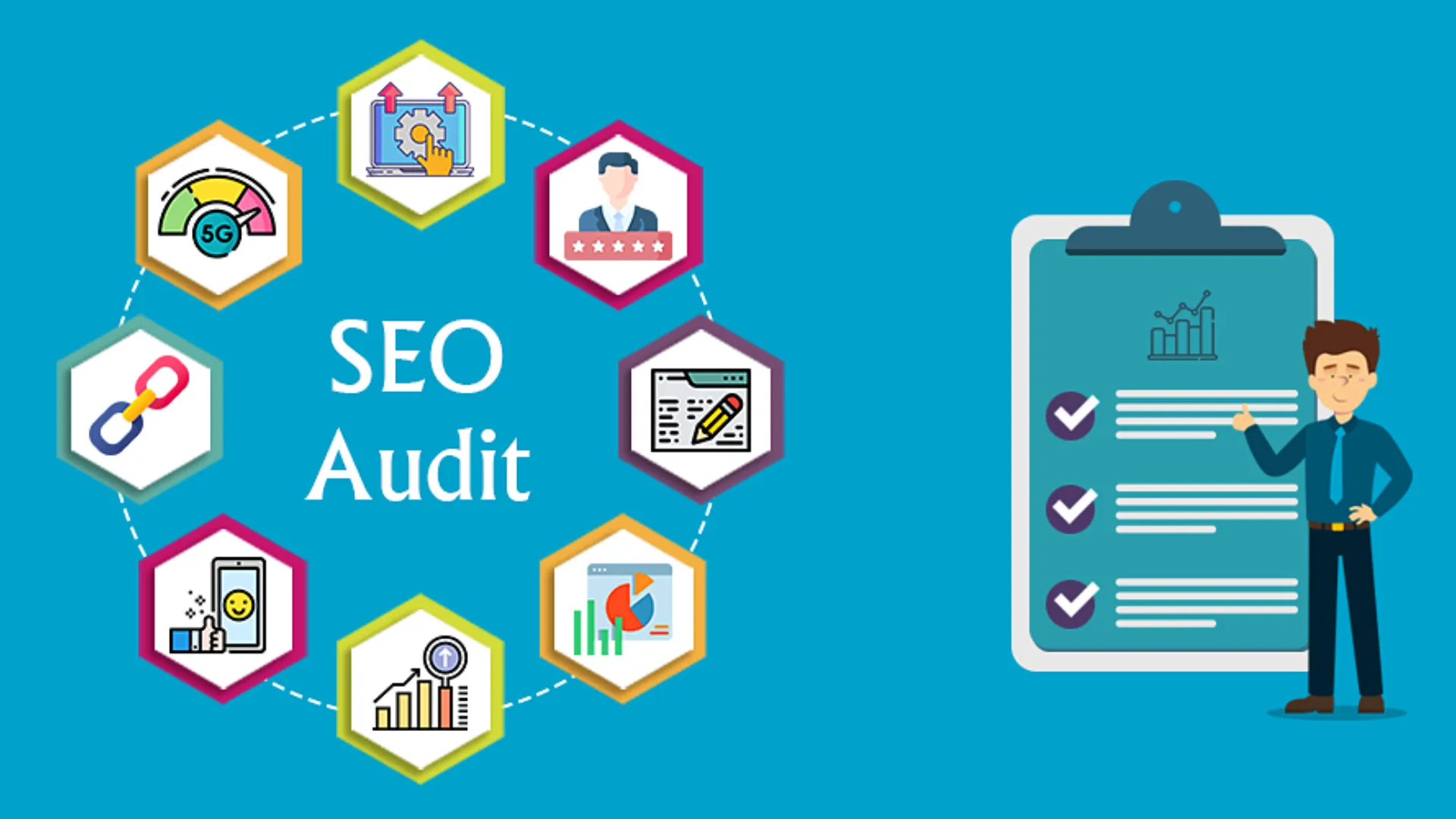
The frequency of your SEO audits remains crucial, but the methodology and subsequent actions must embrace the power of Artificial Intelligence. By integrating AI into your SEO practices – using robust platforms like SE Ranking for audits and analysis, and applying AI for hyper-personalized content for sites like AmpQuartz.com, engaging with communities on Renotalk.com, and showcasing quality materials from suppliers like StoneAmperor.com.sg – renovation businesses can build a more resilient and effective online presence.
Stop thinking of SEO audits as a periodic chore. Start viewing them as strategic check-ins in an ongoing, AI-enhanced conversation with your audience and the search engines. The businesses that adapt to this new, intelligent landscape will be the ones designing and building the future, both online and in the real world.
This article provides a solid foundation on the importance of SEO audits. However, the digital landscape is rapidly evolving, especially with the rise of sophisticated AI. To remain competitive in the renovation market in 2025, a more nuanced and AI-informed approach to SEO audits is crucial. This updated article delves deeper, incorporating the latest AI-powered tactics and highlighting innovative strategies that have proven successful.
The frequency of your SEO audits should no longer be a rigid annual or bi-annual commitment. In 2025 and beyond, a monthly quick check combined with quarterly in-depth analysis, and strategic semi-annual/annual overhauls is the recommended approach.
By embracing the power of AI – from advanced keyword research to predictive analytics – and incorporating innovative strategies like visual SEO and voice search optimization, renovation businesses can gain a significant competitive advantage and ensure their website remains a powerful engine for growth in the ever-evolving digital landscape.
More AI-Powered SEO Audit Strategies for 2025
Welcome to the future: this is where SEO auditing gets really exciting. Artificial intelligence has unlocked capabilities we only dreamed of a few years ago. Instead of static reports and generic checklists, we now have AI agents and smart algorithms that can dig into your website like a skilled detective – finding not only what’s wrong, but why it’s wrong, and how to fix it. Below, we explore the cutting-edge tactics and tools you should leverage in 2025 to turbocharge your SEO audits. These are forward-thinking, psychology-infused strategies designed for brands that refuse to settle for second place.
1. GPT-Based Content Quality Audits (Your AI Content Critic)
One of the most game-changing developments is the ability to harness AI language models (like OpenAI’s GPT-4) as content auditors. In 2025, you can essentially have a tireless AI content editor reviewing every page on your site for quality, relevance, and completeness. This goes way beyond checking for typos or keyword density – it’s about ensuring your content truly satisfies user intent and meets Google’s standards for expertise.
How it works: AI models can read and “understand” your content similarly to how a human would, but faster and at scale. For example, GPT-based content classifiers can evaluate if your blog posts or product pages align with the keywords you’re targeting and the questions your audience is asking. They can highlight if important subtopics are missing from an article, if your tone isn’t matching your brand voice, or if some content might be thin or duplicated. Impressively, these AI can also assess E-E-A-T (Experience, Expertise, Authoritativeness, Trustworthiness) – key quality factors in SEO. Tools like Harpa AI (a browser extension integrating ChatGPT) can audit a given page and even score its E-E-A-T, showing how well your content demonstrates expertise and trust. The AI will point out if, say, your “Kitchen Remodeling 101” article lacks authoritative references or if it doesn’t showcase your company’s real experience in renovations. This kind of feedback is invaluable – it’s like having a seasoned SEO content strategist on call 24/7, giving you clear guidelines on how to enhance each page.
Actionable use-case: Imagine you have a services page for “Bathroom Renovation”. An AI content audit might reveal that while you talk about design and cost, you forgot to include content on permits or common plumbing challenges – topics users often care about. It might suggest adding a FAQ section answering “How long does a bathroom remodel take?” if that’s a popular query. Or perhaps it finds your article is too shallow compared to top-ranking ones that have step-by-step details. The AI will not only flag these gaps but can even help draft improvements. Following its suggestions could significantly elevate your page’s SEO game, making it more comprehensive and trustworthy, which in turn attracts more organic traffic.
Furthermore, GPT-based tools can classify your content by intent (informational, transactional, etc.) to ensure you’re serving the right content for the right queries. They can detect if any sections sound overly machine-generated or off-brand – an important point since Google is wary of low-quality AI-generated text. (In fact, recent insights suggest Google is de-prioritizing content that appears AI-written and not genuinely valuable, so quality control is paramount). By using an AI content auditor, you ensure everything you publish is laser-targeted, human-friendly, and topically complete. This gives users confidence (they find exactly what they need) and sends positive quality signals to search engines. It’s a psychologically potent strategy: you’re essentially using AI to empathize with your audience’s questions and anxieties, then addressing them thoroughly – building trust before a competitor ever gets the chance.
2. AI-Driven Technical Crawling & Monitoring (Your Always-On Patrol)
Technical SEO issues are like hidden termites eating away at your site’s foundations – broken links, slow pages, mobile display glitches, and indexation problems can silently wreck your rankings. Traditionally, catching these required manual crawls with tools like Screaming Frog or painstaking checks by a developer. Now, AI agents for site crawling are changing the game. These intelligent crawlers don’t just spit out a list of errors; they interpret them and even fix some automatically.
What’s new in 2025: Modern SEO audit platforms integrate AI to crawl your site continuously and contextually. For instance, today’s crawlers can simulate real user behavior – they navigate your site like a human, triggered by AI to click buttons or fill forms – uncovering issues that a simple bot might miss. If there’s a broken link three layers deep or an image failing to load on a slow connection, the AI will find it. Some tools can even compare your site’s current crawl data to past data and use machine learning to flag anomalies (“This page usually loads in 1.2s, now it’s 3s – something’s wrong”).
A prime example is the way AI is embedded in site monitoring for Core Web Vitals (Google’s page experience metrics). AI-enhanced services like Lighthouse or WebPageTest can analyze your site speed and stability in real-time and even send you alerts before a performance issue starts hurting your rankings. It’s like having a security alarm system for your website’s health – if your mobile page suddenly has a layout shift problem or your server response slows down, you get an immediate alert and even suggestions on what changed.
Even more impressive, AI can automate fixes for certain technical issues. One case study from an AI-based audit tool showed that a full site audit was completed in under 2 minutes, and the system auto-fixed issues with Open Graph tags and heading structures on the spot. Think about that – the tedious stuff like missing meta tags or improper header order can be handled by the AI instantly, so you (or your team) can focus on bigger strategic tasks. Eliminating these small errors has a psychological impact on your audience too: faster, error-free pages lead to a smoother user experience, which means users stay longer and trust your site more (no frustrating broken pages!).
Actionable use-case: Suppose you run a home improvement blog and online store. You set up an AI monitoring tool that crawls key pages every night. One morning, it alerts you that your “Kitchen Cabinets for Sale” page started throwing a 404 error after an update – and it happened at 2 AM. In the past, you might not have caught that for days and wondered why sales dipped. But your AI patrol caught it immediately, and even attempted to revert the broken link. By the time you check in, it provides a report: “Broken link to /catalog/kitchen-cabinets fixed by linking to /catalog/cabinets (closest match). Please verify.” You just saved countless potential customers from hitting a dead end. Over a year, this kind of always-on vigilance could preserve significant revenue and SEO equity that would have been lost. You’re effectively minimizing downtime and preventing small issues from becoming big problems.
In summary, AI-driven technical audits bring peace of mind. They ensure your site’s infrastructure – the thing most people don’t see but always feel – is solid. In psychological terms, it’s removing hidden roadblocks that frustrate users subconsciously. When everything “just works” on your site, visitors feel more comfortable and confident to do business with you. And Google notices too, rewarding your site with better rankings because it consistently delivers a great experience.
AI brings a proactive edge to SEO audits. Instead of static reports and reactive fixes after traffic drops, future-ready SEO uses adaptive data, anticipative forecasting, real-time automated audits, and AI-driven content optimizations. This means catching issues early and continuously improving, so you’re always one step ahead of competitors.
3. Predictive Analytics for Keywords & Trends (Staying Ahead of the Curve)
What if you could peer into the future and create content before a search trend explodes? In 2025, predictive analytics powered by AI is making this a reality. This is an audit strategy in the sense that you’re auditing the opportunities your site might be missing. Rather than looking only at past performance, you’re using AI to forecast where the puck is going – so you can skate there first.
How it works: AI tools analyze vast amounts of search data, social media trends, and even consumer behavior patterns to forecast future shifts in keyword popularity and search intent. They can recognize patterns in historical data – for example, noticing that every summer, interest in “outdoor kitchen renovation” spikes, but also detecting emerging queries like “solar-powered patio lights” that are small now but show signs of rapid growth. By crunching this data, AI can suggest keywords that are likely to gain popularity soon, even if they’re not huge yet. This means you can create optimized content around those terms before your competitors realize the opportunity exists.
Major SEO platforms have rolled out AI-driven keyword forecasting features. For instance, Semrush introduced a tool that provides a 3-month traffic prediction for target keywords and pages. It factors in your domain’s current authority and the competitive landscape to estimate how much traffic you could gain if you improved your rankings for those keywords. In one scenario, an AI forecast showed that a site could raise its search visibility from about 3% to nearly 9%, triple its daily organic visits, and improve average keyword positions significantly – simply by targeting the right “high opportunity” keywords identified by the AI. In other words, the tool not only tells you what to optimize for, but how much it could matter.
Actionable use-case: Let’s say you run a renovation and DIY blog for homeowners. A predictive SEO tool scans trending data and alerts you that searches for “DIY home office soundproofing” are starting to climb rapidly (perhaps due to more people working from home). It also notes that competition for this term is still low – a golden opportunity. Without this insight, you might not have thought to write about soundproofing at all. Armed with the prediction, you publish a comprehensive guide on “How to Soundproof Your Home Office – DIY Tips”. Because you’re early to the party, your content quickly climbs the ranks. Users flock to it because it’s one of the few substantial resources on the topic, and you secure the top Google spot. Meanwhile, your competitors scramble to catch up weeks or months later. The result? You enjoy a surge of traffic and establish your site as an authority on a trending topic, all thanks to AI foresight.
Beyond just keywords, predictive analytics can guide broader strategy: Is there an upcoming seasonal trend your site isn’t covering? (e.g., a spike in “holiday kitchen makeover ideas” each November). Is user behavior shifting more towards voice search queries or questions that begin with “how to” versus “best”? AI can detect these nuanced shifts. For example, if AI notices that more people start asking conversational questions like “What is the best way to repaint kitchen cabinets without sanding?”, you might create content in a Q&A style to match that natural language query.
In psychological terms, by anticipating your audience’s needs and desires, you delight them. It creates a sense that your brand “just happens” to always have exactly the info they were looking for – almost like you read their mind. That builds an emotional connection and loyalty. On the flip side, being late to trends has an opportunity cost: you miss out on establishing yourself as a leader. Predictive SEO ensures you’re the first mover, which is incredibly powerful for brand positioning.
To implement this strategy, explore tools or AI services that offer trend analysis and “keyword trend spotting.” Google Trends coupled with AI interpretation is a basic approach, but advanced platforms give more precise forecasts. Even some AI SEO suites incorporate semantic analysis to suggest not just single keywords but whole content topics that are poised to become hot. The investment here is small compared to the payoff – capturing traffic before the masses and riding waves instead of chasing them.
4. AI-Powered Competitor Analysis & SERP Intelligence
Knowing yourself is half the battle; knowing your enemy (competitors) is the other half. Modern AI can analyze competitors at a depth and speed that humans simply can’t match, unearthing insights that give you a tactical edge. As part of your SEO audit routine, you should regularly audit your competitive landscape – and AI makes this far more insightful.
What AI can do here: Imagine being able to instantly see what keywords your competitors are ranking for that you are not, and vice versa, and get suggestions on how to close that gap. AI tools can crawl competitor websites and identify content gaps and opportunities for you. For example, if you run a flooring renovation company’s site, an AI might analyze the top 5 competing sites and find that all of them have detailed “Flooring Cost Calculator” pages drawing lots of traffic – and you don’t. That’s a glaring gap to fill. Or perhaps competitors have loads of content on “hardwood vs vinyl flooring pros and cons” and your site barely touches that topic. AI will highlight these findings, essentially giving you a cheat-sheet of what’s working for others.
AI also keeps tabs on competitors’ technical and link-building efforts. It might alert you that a competitor suddenly got 50 new backlinks from home décor blogs (perhaps they ran a PR campaign or a viral content). Knowing that, you can respond – maybe by accelerating your own content marketing or outreach to not fall behind in authority. Or, an AI might notice that a rival’s site has been updated with faster mobile speeds or a new section of content – prompting you to check if that’s impacting their rankings and how you can counter.
Another area is SERP (Search Engine Results Page) analysis. The results pages themselves are now rich with AI-generated snippets, “People Also Ask” questions, local packs, etc. Auditing the SERP means understanding what features appear for your target queries and how to optimize for them. AI can tell you, for example, that for the keyword “kitchen remodel ideas”, Google often shows a video carousel and a “People Also Ask” box. If none of your content includes video, you might be missing out. Or if AI finds that an “AI answer engine” like Bing’s chatbot or Google’s Bard is giving one-sentence answers that often cite a competitor’s site, you know you should produce content that AI itself will consider authoritative (an emerging twist in SEO!). There are even AI SEO audit services now checking how often your site is referenced or appears in AI-driven search results and assistants – a whole new frontier for optimization.
Actionable use-case: You own BestHomeRenovators.com and you’re vying for the #1 spot on Google for “best home renovation tips”. You’re currently #3. By deploying an AI competitor analysis, you discover that the #1 site has a comprehensive 5,000-word guide with interactive images, while your content is 1,500 words with no visuals. Their content covers psychological angles too – e.g., how renovation impacts homeowner happiness – which yours doesn’t. They also have an FAQ section on the page that directly answers many “People Also Ask” questions that appear on Google. Meanwhile, the #2 site has a fast-loading, mobile-optimized page which recently added a section on “AI tools for home design” (very trendy). These are things a quick manual glance might not fully reveal, but the AI audit lays it out clearly: to beat them, you need to upgrade your content length and depth, add engaging visuals, incorporate user questions, improve page speed, and perhaps add a fresh angle like tech in renovations. Essentially, the AI gives you a to-do list to surpass each competitor one by one.
Armed with this, you revamp your page. You might even use generative AI to help create a nice infographic about “10 Renovation Tips” or an interactive cost calculator – leveraging technology the competitors haven’t yet. The result? Your page provides a richer experience and covers more ground. Users dwell longer on it, share it, and gradually, you climb to that #1 spot. Winning feels great, but it wasn’t guesswork – it was a calculated strike based on AI intel.
Pro Tip: Make competitor audits a regular part of your SEO review, not just a one-off. Set your AI tools to periodically scan the competition. If a new player enters the scene or if someone makes a big move (like a site redesign or launching a massive content piece), you’ll know immediately. This keeps you from being blindsided. It taps into the psychology of competitive drive – use that FOMO (fear of missing out) to your advantage. Knowing that an AI is watching your rivals for you can be highly motivating; it turns SEO into a sport where you always have a live scoreboard. You’ll feel that spark to continuously improve, which is exactly the mindset that leads to dominating the rankings.
5. Continuous AI Monitoring & Alert Systems (Your SEO Guardian Angel)
The final AI-powered tactic ties all the others together: establishing a system of continuous monitoring and alerts. This isn’t a single audit task but rather a safety net that ensures you’re immediately aware of important changes in your SEO performance. Think of it as having a guardian angel for your website’s SEO – one that never sleeps.
What it involves: Using AI and automation, you set up alerts for key SEO KPIs and site metrics. For example, you can get an alert if your organic traffic drops or surges unusually in a day (indicating either a problem or an opportunity). If your site’s index coverage in Google Search Console suddenly falls (pages got deindexed) or if impressions plummet, you know right away. AI can be configured to watch for ranking fluctuations of your critical keywords – if you suddenly drop from rank 3 to rank 10 for “home remodeling contractor [your city]”, the system pings you. More advanced systems even integrate with analytics to notice user behavior shifts (e.g., bounce rate on your landing page jumps up, hinting at a new user experience issue after a change).
The magic of adding AI to this is reducing false alarms and highlighting meaningful alerts. Traditional monitors might spam you with dozens of minor notices (“this keyword moved from #8 to #9”) which creates noise. AI, however, can learn which movements or metrics truly correlate with significant impacts. It might ignore a trivial rank blip but definitely alert you if a cluster of your keywords all drop, suggesting an algorithm update impact. Or it can correlate that “site speed dropped 20% and at the same time, bounce rate increased 15%” which together are a red flag worth acting on.
Actionable use-case: Picture a scenario where Google rolls out a core algorithm update (they often do with names like “March 2025 Core Update”). Many sites won’t realize how it affected them until weeks later, when monthly reports come in. But you have an AI guardian. Within a day of the update, it detects that your site’s average position for numerous keywords slipped by a few spots and organic traffic is down 10% versus last week. It sends you a concise alert: “Possible algorithm impact – 10% traffic drop, mostly on informational blog pages. Consider auditing content quality/E-E-A-T on those pages.” Not only are you alerted, but you get a hint of where to look. You promptly audit those pages (using the tactics above, perhaps GPT content analysis) and discover they could use more authoritative citations and a refresh to match user intent. You update them quickly. Within a week or two, you recover your rankings while many competitors are still trying to figure out what happened. Early detection and agile response gave you a bounce-back advantage.
Continuous monitoring isn’t just about crisis management. It also helps you catch positive trends to capitalize on. For example, if one of your new blog posts suddenly starts getting a lot of traffic (maybe it got shared on Reddit or picked up by Google Discover), an AI alert can notify you. You might then decide to add an internal link from that popular post to a product page (to drive conversions), or update the post to thank readers and subtly encourage newsletter sign-ups while the traffic is hot. Without an alert, you might not realize the spike until it’s passed.
From a psychological perspective, having an AI guard on duty instills confidence and peace of mind. You’re not lying awake at night worrying, “What if something goes wrong on my site and I don’t find out for days?” You know your digital watchdog has your back. This frees you to be more creative and bold in your strategy, because you’re not constantly firefighting or anxiously double-checking everything. It’s like driving a car with a high-tech collision avoidance system – you still drive carefully, but you have that extra layer of protection that makes the journey less stressful.
By integrating these AI-driven strategies into your SEO audits, you transform the process from a periodic headache into a continuous engine of growth. You’ll move swiftly from discovering issues to fixing them, often before anyone else even knows there’s a problem. And you’ll unearth opportunities that others miss, giving you a first-mover advantage that can translate into significant gains in traffic and revenue.
Next, let’s look at some real-world examples of companies (especially in renovation/home improvement) that embraced these innovative tactics – and saw remarkable results.
Case Studies: Brands Dominating with AI-Driven Audits
Nothing drives a point home better than real-world proof. The following case studies show how companies, including those in renovation and home improvement sectors, have leaped ahead by using forward-thinking SEO audit strategies (many powered by AI). These examples are meant to inspire and motivate – by seeing what’s possible, you can visualize the concrete benefits for your own business.
Case Study 1: Flyhomes – 10,737% Traffic Growth with Content Expansion
When it comes to jaw-dropping results, Flyhomes is a headline-maker. Flyhomes is an AI-powered home search and real estate platform – not exactly a traditional renovation company, but it operates in the home buying/improvement space by providing information to prospective buyers. They realized that to dominate their niche, they needed to provide comprehensive content that answered every question their audience might have. Essentially, they conducted a massive content audit and expansion using data-driven insights.
What did they do? Over just three months, Flyhomes expanded their website from about 10,000 pages to over 425,000 pages of content by systematically identifying what homebuyers and homeowners wanted to know. They created in-depth guides on everything from cost-of-living in different cities to detailed real estate and renovation advice. Importantly, this wasn’t low-value fluff – these were targeted pages aligned with audience interests (all discovered through rigorous research and likely AI analysis of search queries). One key area was their cost-of-living guides, which alone ended up generating 55.5% of all site traffic.
The result? A staggering 10,737% increase in organic traffic in those three months. That’s not a typo – they multiplied their traffic over a hundred-fold, attracting over 1.1 million monthly visits. This explosive growth showcases the power of an insight-driven content audit: by finding content gaps and filling them at scale (and doing it well enough to not get penalized by Google), Flyhomes rode a wave straight to the top of the search results. It’s a testament to aligning content with user needs and being exhaustive in covering your topic.
Takeaway: You might not need hundreds of thousands of pages, but the principle applies universally. For example, a home renovation firm might audit their blog and discover they’ve written plenty about “kitchen remodel tips” but little about “basement finishing” or “energy-efficient home upgrades” which are trending. By expanding content intelligently – possibly with the help of AI to find those untapped topics – you too can capture massive new swaths of traffic. Flyhomes proved that if you give people the information they crave (and lots of it), they will come in droves. It’s an emotional win as well: imagine the confidence and industry reputation boost of seeing your site become the go-to resource in such a short time. That’s the reward of forward-thinking audit and content strategy.
Case Study 2: Local Renovation Contractor – From Invisible to Unmissable
Let’s look at a scenario closer to a typical home improvement business. Consider “Miller Home Renovations” (a hypothetical composite of several real cases). Miller was a local renovation contractor that had a decent website and some referrals, but virtually no organic presence. They weren’t showing up for important local searches like “bathroom remodel [city]” or “home renovation contractors near me”. They engaged in a thorough SEO audit with a modern approach – combining traditional fixes with AI-enhanced strategies.
Initial Audit Findings: The audit (done by an agency using AI tools) revealed a host of issues. Technically, the site was slow on mobile, had broken images, and lacked proper schema markup. On the content side, their site had thin content – service pages with just a few lines and a couple of generic blog posts. Competitor analysis showed that rivals had detailed project galleries, client testimonials (with rich snippets), and blog articles addressing common homeowner questions. Miller’s site had none of that. They also discovered via keyword gap analysis that there were dozens of high-volume, low-competition keywords around home renovation in their region that they weren’t targeting at all.
Actions Taken: Miller’s team (with guidance from the audit results) went all-in on improvements:
Technical fixes: They used an AI-assisted crawler to identify all broken elements and speed issues. They optimized images, fixed links, and implemented schema markup for local business and reviews (making their Google listing more eye-catching with star ratings).
Content revamp: They expanded their service pages from a few lines to robust descriptions including process, materials, before/after photos, and FAQ sections (with answers gleaned from People Also Ask suggestions). They launched a blog and, using predictive tools, picked content topics that were trending (e.g., “2025 Kitchen Design Trends” and “How to Finance Your Home Remodel” which local users were searching for). They even leveraged GPT-based writing assistance to draft some articles efficiently – which were then human-polished for quality.
Off-page and reviews: The audit had noted few backlinks and scarce online reviews. They initiated a campaign to get happy past clients to leave Google reviews (boosting their average rating and quantity). For backlinks, they used AI to identify relevant local directories and home improvement blogs, and pursued those opportunities (guest posting, getting listed on supplier websites, etc.).
Results: Within six months, the impact was dramatic:
Organic traffic increased by over 300% (from a very low base to a steady flow of local visitors).
The site started ranking on page 1 for dozens of keywords, including high-intent ones like “Kitchen remodeling [city]” and “home renovation experts [city]” – where previously they were nowhere to be seen.
Leads went from trickling in to a consistent stream. In fact, Miller Home Renovations reported that they secured 50+ new project inquiries in that period purely from organic search, resulting in several high-value contracts. This was a company-transforming outcome for a small business.
ROI wise, they calculated an approximate 250% return on investment on the SEO efforts within that first year, considering the new business generated (this mirrors results like those of City Cabinet Center, a real kitchen/bath company that saw a 250% ROI with focused SEO efforts).
Now, Miller’s story is an amalgam, but it reflects patterns seen in real case studies. For instance, another real-world example: Guy’s Painting Co. (a painting contractor) improved their search rankings by covering 100+ on-page and off-page factors in a comprehensive campaign, leading to a 325% ROI and quick increase in leads. Or Think Paint, which struggled until they fixed site problems and built authority via quality content and links – within 3-4 months, their keywords shot up to the first page and they sustained a 375% ROI on their SEO investment. These numbers underscore a common theme: when you address SEO holistically (technical, content, off-page) using data-driven insights, the results can exceed expectations.
The psychological aspect here is also important. Miller’s team went from feeling invisible and frustrated (“Why are competitors getting all the online leads?”) to feeling empowered and proud (“People in our city keep saying ‘I found you on Google and loved your reviews’!”). This morale boost reinforced their commitment to continuous SEO improvements. Success breeds motivation – after seeing tangible results, they made SEO audits a regular quarterly practice, each time finding new ways to refine and grow.
Case Study 3: eTech Solutions – Rapid Recovery with AI Auditing
Outside of home improvement, to illustrate the power of AI in an SEO audit, consider eTech Solutions, a B2B software company (drawn from a case by an AI SEO platform). They experienced a sudden 30% drop in organic traffic after a Google update, which affected visibility of 5 key pages. Instead of manually combing through everything, they used an AI-driven SEO audit tool (HackYourSEO platform) to diagnose and fix issues.
What Happened: The AI audit took under 2 minutes to analyze the entire site. It identified that the affected pages had some common problems: inconsistent header structures and missing Open Graph tags (which could hurt how their content was being shared/previewed, indirectly affecting traffic), plus it spotted some content gaps relative to new search intent after the Google update. The tool didn’t just stop at finding issues – it auto-fixed the technical tag issues site-wide and even used its AI content writer to help fill the content gaps on those pages.
Results: In just 45 days post-fix, eTech saw a remarkable turnaround: +68% clicks in Google Search Console, three of those key pages jumped into the top 3 positions, and they ranked for 7 new high-volume keywords they previously didn’t. In other words, not only did they recover the lost traffic, they actually surpassed their prior performance. It was like turning a crisis into an opportunity by reacting fast and thoroughly. The speed here was crucial – many competitors hit by the same update likely took months to recover, but eTech’s AI-driven audit gave them a blueprint to rebound in weeks.
For a home improvement business, a similar scenario could be a sudden drop due to a Google change emphasizing, say, Core Web Vitals. A quick AI audit might catch that your site became slow or unstable after an image-heavy portfolio update. By acting swiftly (compressing images, adding proper lazy loading, etc.), you could restore your standing before your competitors even diagnose their own issues.
The lesson from eTech’s case is clear: AI audits can drastically cut the time between “problem detected” and “problem solved.” In a competitive market, that agility is everything. It turns what could be panic (“Our traffic tanked – what do we do?!”) into a focused action plan (“Audit says our content lacks X and Y, let’s add it, and fix Z technical issues right now”). And that is incredibly empowering. It’s like having an AI co-pilot that helps you navigate through an SEO storm.
These case studies underscore that innovative strategies plus consistent action lead to real, measurable wins. Whether it’s multiplying traffic via content expansion, grabbing local market share through comprehensive optimization, or rapidly recovering from setbacks with AI assistance, the common thread is proactive, data-informed auditing and improvement. Brands that have embraced these methods aren’t just doing slightly better – they are dominating their space and often reaping outsized rewards (traffic, leads, revenue) for their efforts.
As you can see, the technology and tactics exist to dramatically improve your SEO outcomes. The question is, will you leverage them or let competitors take the lead? In the final section, we’ll wrap up with a call to action – because the biggest difference between those case study successes and everyone else is that they took action.
Actionable Steps: Leverage AI for Your Next SEO Audit
By now, you’re probably eager to put these insights into practice. To help you channel this motivation into results, here’s a practical game plan. These steps break down how you can start incorporating AI-powered tactics into your SEO audits immediately. Whether you’re a DIY marketer or a business owner coordinating with a team/agency, these actions are your blueprint to move forward confidently:
Schedule Your Audits (and Stick to It): Decide on an audit frequency that fits your situation (refer back to the “How Often” section). Mark it on your calendar – literally. For example: “SEO Audit – First Monday of every quarter” or “Mini SEO Check – First of every month”. Consistency is key. By scheduling it, you treat it as a non-negotiable business routine. Pro Tip: Set up automated reports (via Google Analytics, Search Console, or SEO tools) to arrive in your inbox at those times as a starting point for review. It’s much easier to follow through when you have a recurring reminder and fresh data in hand.
Deploy an AI SEO Audit Tool: Take advantage of the many AI-powered SEO tools available. You don’t have to build your own AI – you can use existing ones that are battle-tested. For technical audits, consider tools like Screaming Frog with its new AI integrations, or online platforms like Sitebulb or Semrush’s Site Audit which now include AI insights. For content, try out an AI content analyzer – for instance, Clearscope or Surfer SEO paired with GPT-4 can rate your content quality and relevance. If you’re adventurous, even browser extensions like Harpa AI (as discussed) can be a free quick start. The goal is to let these tools do the heavy lifting of finding issues and opportunities. They will save you countless hours and catch things manual checks miss.
Audit Your Content with GPT Assistance: Choose a few of your key pages (perhaps your homepage, main service page, and top blog post) and run a content audit on them using AI. You can literally prompt ChatGPT (or another model) with something like: “Analyze the content of this page [paste content or URL] for SEO quality. Does it fully answer common questions about [topic]? What could be improved?” You’ll be amazed at the constructive critique it can provide. Many of these AI models have been trained on what good content looks like, so their suggestions often align with SEO best practices. Make the recommended tweaks – add that extra section, improve that explanation, sprinkle in a real-life example or testimonial where the AI sensed a trust gap. These incremental improvements, page by page, add up to a significantly stronger site. And don’t forget to ensure every page demonstrates E-E-A-T: add author bios, cite sources, showcase your experience (“Over 20 years renovating homes in [Your City]”), etc., which AI can help suggest.
Implement Predictive Keyword Tracking: Sign up for a tool or set up a system to get keyword trend insights. This could be using Google Trends + an AI script that sends you weekly summaries, or leveraging built-in features of SEO suites (Semrush’s keyword trends, Ahrefs trends, etc.). The simplest action: make a list of say 5–10 core topics relevant to your business. For each, use an AI tool to find emerging related queries. For example, ask “What are some rising search queries related to ‘kitchen remodeling’?” The AI might return something like “outdoor kitchen 2025 trends” or “smart kitchen appliances setup” if those are gaining interest. Armed with that, plan one piece of content in the coming month for each emerging topic. This way, you’re always adding fresh, relevant content that’s aligned with future demand. It’s a shift from reactive content creation to proactive – a habit that can put you perpetually ahead.
Set Up AI Alerts for Critical Metrics: Use your analytics or SEO platform to configure alerts – many have this feature. If not, there are third-party services (some are AI-driven) like ContentKing or Little Warden, which monitor sites 24/7. At minimum, ensure you get alerted for: dramatic traffic changes (up or down), significant rank changes for your top keywords, site outages, or new errors in Search Console. For a small site, even Google Analytics Intelligence can email you if it detects anomalies (it uses machine learning to decide what’s abnormal). The key step here is not just setting the alert, but planning your response. For each type of alert, consider in advance: “If this happens, I will first check X, then do Y.” For instance, “If daily organic traffic drops >20%, I will check Search Console for coverage or manual actions, then run a quick crawl to see if the site’s up.” Having this game plan removes the panic element. You’ll tackle issues swiftly and calmly, like a pilot following a trained procedure.
Foster a Culture of SEO Awareness: If you have a team (or even just yourself), start treating your website’s SEO health as something as important as finances or customer service. Regularly share findings from your audits. For example, in team meetings, have a 5-minute segment, “SEO insights of the month,” where you say “We found through an AI audit that our page speed was lagging on mobile, so we fixed it and now our bounce rate improved by 10%. Great job team, this means more visitors are sticking around!” This kind of internal storytelling does two things: it keeps everyone invested in SEO success (making it more likely you’ll keep up the efforts), and it underscores the psychology that we win as a team by paying attention to these details. When everyone from content writers to web designers understands the “why” behind SEO tweaks (thanks to audit data), they’re more likely to execute future changes with enthusiasm and precision.
Keep Learning and Adapting: The SEO landscape with AI is continuously evolving. Make it a point to stay updated on new AI tools or tactics that could enhance your audits. Subscribe to a couple of reputable SEO blogs or newsletters (like Search Engine Journal, Moz, or Search Engine Land’s updates) that frequently discuss AI developments. For instance, if Google launches a new “AI answer engine” in search results, learn how that might affect your strategy. Perhaps in a year, the advice could be to also “audit how your content is picked up by voice assistants or AI chatbots.” By staying curious and agile, you ensure your strategies remain cutting-edge. Never get complacent – the brands that dominate are always the ones adapting and experimenting a bit ahead of the rest.
By following these steps, you’ll create a virtuous cycle: Regular audits → Continuous improvements → Better rankings/traffic → Motivation to audit more → and so on. Each action you take, no matter how small, is a step toward a stronger online presence.
You Might Be Interested In These Too!
 10 Best Marketing Plugins for WoocommerceNovember 11, 2022
10 Best Marketing Plugins for WoocommerceNovember 11, 2022 3X Better Leads, 2X Faster: How I Used ChatGPT to Generate High-Converting Landing PagesFebruary 10, 2024
3X Better Leads, 2X Faster: How I Used ChatGPT to Generate High-Converting Landing PagesFebruary 10, 2024 5 Content Marketing Trends That Will Skyrocket Your TrafficJune 16, 2023
5 Content Marketing Trends That Will Skyrocket Your TrafficJune 16, 2023 Meta Ads Custom Metrics 2025: Using HOLD RATE to Optimize CampaignsDecember 6, 2024
Meta Ads Custom Metrics 2025: Using HOLD RATE to Optimize CampaignsDecember 6, 2024

